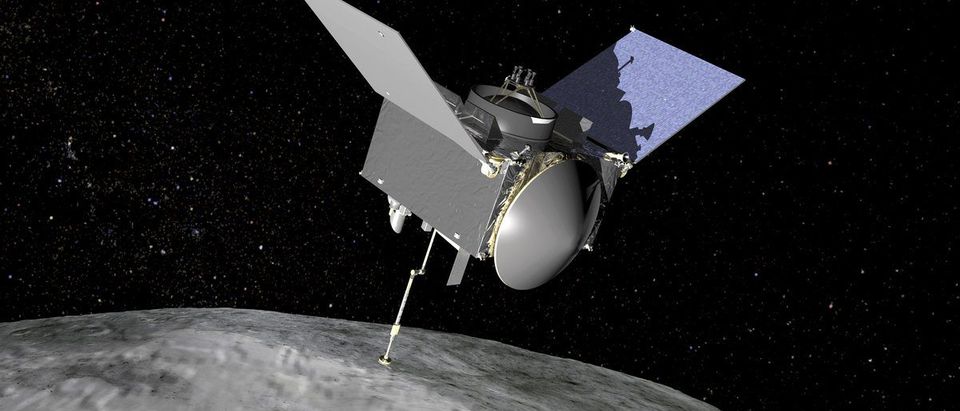The European Space Agency’s (ESA) Rosetta probe finally landed on the comet it had been investigating for more than two years Friday.
The probe descended onto the comet in a controlled impact as the comet is heading out beyond the orbit of Jupiter meaning there would be not enough power to operate the craft.
“Rosetta has entered the history books once again,” Johann-Dietrich Wörner, ESA’s Director General, said in a press statement. “Today we celebrate the success of a game-changing mission, one that has surpassed all our dreams and expectations, and one that continues ESA’s legacy of ‘firsts’ at comets.”
Since launch in 2004, Rosetta has orbited the Sun six times and traveled nearly 5 billion miles. The probe has flown by Earth three times, Mars once and asteroids twice. Rosetta was the first spacecraft to orbit a comet, and the first to deploy a lander to a comet in November 2014.
The mission concluded that water vapor from the comet was substantially different from that found on Earth. This means that the large amount of water on Earth probably didn’t come from similar comets. This indicates that Earth’s water probably came from asteroids instead.
Rosetta found complex and solid organic molecules, which are the building blocks of life, in dust particles surrounding the comet.
“Our analysis reveals carbon in a far more complex form than expected,” Dr. Hervé Cottin, one the scientists who discovered the molecules, said in a statement. “It is so complex, we can’t give it a proper formula or a name!”
Rosetta’s discovery supports new scientific theories that the building blocks of life on the surface of space rocks.
NASA is sending the OSIRIS-REx probe to the asteroid Bennu in 2018 where it will acquire samples of the asteroid using the Solo cup-inspired reverse vacuum device. The 4,650-pound, $800 million spacecraft will launch during a 34-day window this September and should reach Bennu sometime in 2018. The probe will collect up to four pounds of material from Bennu and return it to Earth by 2023.
Bennu is one of many near-Earth asteroids that has a small chance of one day slamming into Earth. Returning samples from it will allow NASA to better predict how asteroids move, making it easier for the space agency to stop future rocks from striking our planet.
Private companies also plan on sending probes to make contact with asteroids. Deep Space Industries (DSI) plans to do so in 2017, the company’s CEO told The Daily Caller News Foundation. DSI believes it can sell air, building material, water and propellant in space cheaper than launching from Earth. The company believes it can begin full-scale asteroid mining operations in the mid-2020s.
Send tips to andrew@
All content created by the Daily Caller News Foundation, an independent and nonpartisan newswire service, is available without charge to any legitimate news publisher that can provide a large audience. All republished articles must include our logo, our reporter’s byline and their DCNF affiliation. For any questions about our guidelines or partnering with us, please contact licensing@dailycallernewsfoundation.org.


